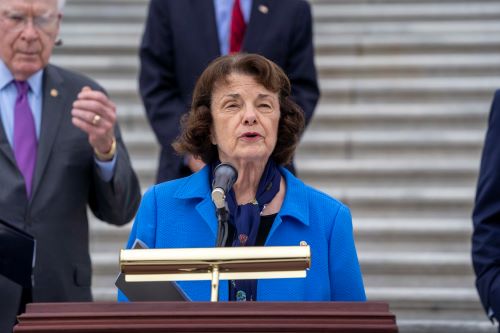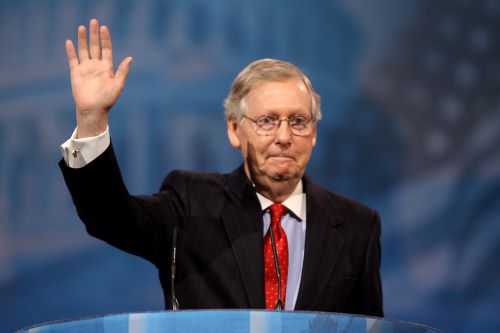In the ever-evolving landscape of American politics, there’s a certain charm in the seasoned voices that have echoed through the Senate chambers and the White House for decades. Their wisdom, their resilience, and their sheer determination can be likened to the strong oak tree that has withstood countless storms. But just as an old tree might begin to show signs of wear, the question arises: Is it time for some of our veteran politicians to consider stepping aside for the next generation?
1. Dianne Feinstein:
Our esteemed Democratic Party veteran, at a graceful 90, has been around since the days when the internet was but a dream. Her contributions are undeniable:

- Championing women’s rights.
- Making pivotal moves for the environment.
- And spearheading the 1994 Assault Weapons Ban.
However, even the most resilient oaks might need a break from the storm.
2. Mitch McConnell:
The Republican stalwart, with his indomitable presence in the U.S. Senate for 39 years, has been a force to reckon with. His achievements are a testament to his dedication:

- Influencing the federal judiciary.
- Driving the Tax Cuts and Jobs Act of 2017.
Yet, there have been moments that raise eyebrows. In July 2023, McConnell appeared to freeze when asked about his re-election plans during a press conference with fellow Republican senators. While everyone can have an off day (haven’t we all blanked during a presentation?), for someone in such a pivotal role, these moments can be concerning.
3. Joe Biden:
The journey from the Senate to Vice President and then the Presidency, Biden’s political career is the stuff of legends. His critical role in the Affordable Care Act and his leadership in foreign policy are commendable. But for about 3 or 4 years now, whispers about Biden’s cognitive decline have been growing louder. While it’s essential to treat such topics with sensitivity, the stakes are high when leading a nation.

Canada’s Own Hazel McCallion, Mayor of Mississauga

We are not advocating those old politicians should just retire because they are old, but the ones that show cognitive decline on a regular basis and have prolonged health issues affecting their role to serve should consider it for the good of their constituents and the country.
Take Hazel McCallion who was at an advanced age of 93 and could have probably continued to be mayor, but she decided to let it go.
Hazel McCallion, often dubbed “Hurricane Hazel,” served as the Mayor of Mississauga for an impressive 36 years, from 1978 to 2014. Under her dynamic leadership, Mississauga blossomed from a collection of small communities into a major urban hub, all while maintaining a debt-free status—a testament to her fiscal prudence.
Recognizing when it was time to pass the torch, McCallion decided not to seek re-election in 2014 at the age of 93. Yet, her retirement from mayoral duties didn’t mean a departure from public service. McCallion remains an active contributor to public life, leveraging her vast experience to advise and inspire the next generation of leaders.
A Thoughtful Proposition:
Just as many advocate for periodic driving tests for seniors to ensure road safety, perhaps it’s time we consider something similar for our politicians.
After reaching 75, and especially if showing signs of cognitive decline, maybe a cognitive test should be a prerequisite for running for office. This isn’t about age discrimination but responsibility.
The decisions they make impact the lives of constituents, and in the case of the President, the fate of the entire nation.
To Feinstein, McConnell, Biden, and all our seasoned leaders: Your service has been invaluable. The stories you’ve written into the pages of American history are irreplaceable. But as the world rapidly changes, perhaps it’s time to pass the torch, ensuring that the leadership remains both wise and agile for the challenges ahead.




